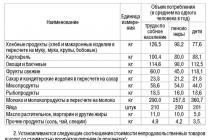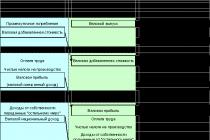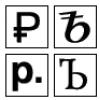Error found:
Question: You are a day trader, tell us more about your trading style.
Judy: I love intraday trading because that's really what I want - lots of trades or a few trades depending on how I'm set up. I learned a long time ago that you shouldn't trade when you're not in the mood. That's why I trade when I'm in the right mood, and when I'm not trading, I enjoy chatting with other traders, typing comments, studying charts, and answering questions.
My trading style is very short term trades. I use constant tick charts at 30, 50, 75, 150 and 300 ticks. I put in fairly close stops as I don't like to give too much or wait for a retracement. I prefer to re-enter the market when the trend continues. Thus, I will have 3 trades during a trend, where the trend trader will only be able to take one. My goal every day is to finish in the black every day including broker commissions. The rest seems to work out on its own.
Question: How often do you reach your daily goals?
Judy: Before I learned to stay on the sidelines if I didn't want to trade, I could miss my goal up to 5 times a month - now it happens very rarely. I still review my trades at the end of the day to make sure I follow my rules. I think this is very important to do in order to grow as a trader. Even if the trade is losing, but you followed your rules, then in the end you won. I also feel it's important to have your own system. They may be bits and pieces of other systems, but it should be your system, with your rules to match your personality and your trading style. If you're not trading with something that suits you perfectly, then it usually won't work well. Everyone keeps looking for the "Holy Grail" and I really think it's purely individual.
Question: What are you trading?
Judy: I trade NQ futures. Before I traded futures, I traded stocks during the day, and Nasdaq stocks were usually the most volume. So I felt more familiar with NQ. I really enjoy switching to the e-mini since I don't look at stock charts all night. I can take a break from the market at any time and don't have to watch the market for days to find out where it is. And I can do what I really love - visit the E-mini anonymous chat, discuss trading and help other traders learn how to make money in the market.
Question: What does it take to trade during the day like you?
Judy: I have two computers. One is a 450 MHz Pentium II with three monitors loaded with "Ensign Windows" and trading platform. The other computer is a 500 MHz Pentium III with two monitors, which is used for chat, e-mail, and networking. It seems to suit me.
Question: What data feed are you using and how comfortable are you with it?
Judy: I am using "eSignal" with "Ensign Windows" charting software. I find this combination very reliable. I never knew how valuable permanent tick charts were until I started using Ensign Windows. Minute charts can hide a lot - swing high/low testing, flags, etc. I seriously doubt that I will ever return to trading on minute charts. In fact, I watch them to answer questions that other traders who don't have tick charts may have.
Question: Could you talk about some of your trading rules?
Judy: I am not chasing the market - if I miss a trade, I miss it - there will be another opportunity. Also, if I miss a trade, it usually means I'm not focused enough. I decrease my position size if I have two losing trades in a row. Although it hasn't happened for a long time, but before, I used to fulfill the deal out of revenge - I tried to return the deal. When I learned and continued to trade with virtual accounts, I usually allowed myself only 3 losing trades on a real account before I had to return to trading on virtual accounts.
As I mentioned, I only trade when I feel like it and when the odds are in my favor. When I suspect that the market will overturn me, then I take a break. Moving averages that are flat, especially the 50- and 200-period EMAs, and the price clamped by them on the 75-tick chart, are the two key signs I use to identify the problem area. This is a time to just watch until the market takes some direction again. I always know what reports are due out and I'm never in the market when they come out.
Question: How important is good health to trading success?
Judy: I think it's very important. Just as you must strive to do the best you can in any job, you must be internally prepared to play the market game of chess. If I'm not having a "busy" day, then I tend to set a longer time frame and make fewer trades.
Question: What protection do you use to protect yourself from major losses?
Judy: I hate losing money, so I don't risk risking more than 3 or 4 pips. I haven't had a big loss in a long time. I always use stop orders, even when scalping, and plan my exit from the market.
Question: How long have you been trading?
Judy: I've been dabbling in stocks since 1994 and have had some luck with some of them. Because of my friend who was very sick, I didn't trade much in 1998. He passed away in June of that year. I decided that I didn't want to go work for others and really love the challenge of the market. Piet Buhl's book confirmed my thoughts - I read it in one sitting. So, I bought a lot of books and started trading stocks at the end of 1998.
Question: You have talked about many things that you do. What would you advise readers not to do?
Judy: Don't trade until you have your own system with your own rules. Even if it's someone else's system, you still need to make sure you fully understand it. Install maximum amount money or points that you can lose in a day. Don't increase your position size if you are losing. Analyze your trades more often - make sure you follow your rules - even if the trade is a losing one, but you followed your rules, you won. If something goes wrong, take your time - an out-of-market position is also a position. You don't always have to be in the market. Discuss with other traders what you might be doing wrong. Some did this to me when I was trading stocks. I have learned so much from them.
Question: Discipline is the most important element of trading, isn't it?
Judy: Absolutely. I believe the only way to find the "Holy Grail" is by yourself, not trading system or technical indicators. I love to communicate with other traders. Many people come to me and ask what was wrong with this or that transaction? Or ask questions to learn. I don't like to see other people lose money - which is why our motto is that we will try to teach you how to trade profitably.
Question:There are many graphics programs available. Which of them are you familiar with and which ones would you recommend?
Judy: I am familiar with "Qcharts", "TC2000" for the end of the day, "IQCharts" and "QPlus" for browsing. Last April there were problems with data submission and I found eSignal, but they software for plotting charts at that time was not even close to what I used in "Qcharts". I went ahead and found "Ensign Windows". The combination of "Ensign Windows" graphics program and eSignal data feed is best for non-e-mini trading during the day.
Question: Would you like to add something else?
Judy: I would like to list my priorities:
1. Market challenge.
2. Help others learn to trade. I love teaching others.
3. And then comes the cash reward.
This options trader says, "You don't have to be an aggressive trader to make money like an options trader." After learning everything he could about options trading, Gavin McMaster decided to take matters into his own hands and start trading options. He hasn't worked in the sales department for a single day. financial company although the thought crossed his mind. McMaster even earned a master's degree in applied finance and investment, but he admits it didn't help him learn how to trade options. He now has a very conservative option trading style and believes that patience and the ability to wait for the best formations are the keys to successful trading. He prefers to focus on short volatility strategies. McMaster has written five books on options trading that are available on Amazon.
Gavin, tell us a little about yourself and how you got interested in financial markets.
My first memories of financial markets are primary school. They are connected to a fictional story told by the teacher. It was the story of an investor who bought a stock that went from $1 to $999. He was greedy and did not sell it. Of course, the stock dropped to $1 again, and this fictitious investor went back to square one. Since then, I have been fascinated by the financial markets, so it is not surprising that I entered the industry. My parents also played a big role. In the mid-1990s, they bought me $2,000 worth of shares in a telecommunications company. At that time I was 13 or 14 years old. I remember checking the newspaper every day to see how my stock was doing. Since then, I began to watch other promotions every day, and was really fascinated stock market. I wanted to be when I grew up stock broker because I thought it was the only job in the financial markets.
And did you eventually become a stock broker or something else?
As I grew up a little, I realized that I didn't want to be a stock broker. It's just a pretty name for the seller. I didn't want to sell shares to clients in the hope of a commission, so I decided to do it myself.
You are not only an independent trader, but also a trader who himself has learned to trade options. Tell us how you learned it.
I first learned about options in 2004 from a small book I received from the Wall Street Journal, An Introduction to Capital Theory and Investing. It contained the usual information about stocks, bonds, mutual funds and indexes. There was also a section on options. I always knew that it was possible to make money on a falling market, but until that moment I did not understand how this was done. I knew it was possible to short stocks, but I also knew that it was difficult and risky. So when I first learned about options, I was very interested.
What exactly did you like about options so much?
I liked the flexibility. When I started studying options, I read a book that described 25 key strategies. It was possible to trade very flexibly. You can make bullish, bearish, neutral, synthetic and volatile trades, as well as enter into trades with a proportional spread. Exploring all these ideas, I felt like a kid in a candy store. Trading stocks is very boring compared to options because you can only be long or short or sitting on the money. There is no flexibility.
I read a myriad of books and started trading in 2004. And then, in 2007, I started trading credit spreads and iron condors. I was attracted by the opportunity to earn income without having to choose the direction of the stock. At that moment, I returned to teaching and received a bachelor's degree in financial markets and then a Master in Applied Finance and Investment. In one of the master's courses there was the topic of options. Reading the course material, I realized that I already knew all this from previously read books and my own market research.
What led you to decide to return to teaching?
I had a real thirst for knowledge. In addition, I wanted to improve my skills. I don't regret it, but I don't think getting a master's degree really helped me much either. The training program was great for graduating, but it didn't teach me how to trade. Theory was taught there, and theory is nothing until you put it into practice and put real money at stake.
Why do you think so?
Book learning is limited. Nothing replaces experience. And the only way to get it is to seeand make a deal for real money. People learn from their mistakes. I fully paid for my "training" in the market in the form losing trades. In my first options trade, I bought a Put on one of the shares. The only reason I chose this stock and this Put is because they were cheap. I only had to invest $200. Needless to say, this trade failed and I lost 100% of my money. I also had big losses in 2008-2009 when the market crashed. I made "amateur trades", did not manage risk and did not have a good trading plan. I thought I knew more than I actually knew. I didn't realize how important it is to have a trading plan in writing. I imagined that I did not need it, since I could keep everything in my head. Since then, I have realized that having a plan in writing is not only important - without it, it is impossible to succeed.
Who was your mentor, or who did you look up to when you were studying?
The biggest influence on my trading has been Tony Sizemore. I first learned about it from a magazine article. I remember that some of the ideas he expressed simply amazed me. He just opened up for me new world. I have been a member of his trading group for over a year and it has greatly accelerated my learning.
When trading options, were there things you came across that you couldn't learn from books or from people you learned from?
One of the most important indicators that I followed are the so-calleddelta dollars. For some reason no one else talked about it. It's just the position delta multiplied by the price. underlying share. It helps to know how much I risk at any given moment. I found this indicator to be very useful in deciding whether to adjust option trades. In addition, Sizemore was well versed in "managing the Greeks", which also influenced my trading. Having rules based on delta/theta and vega/theta ratios is very useful for risk management.
How are these ratios related to risk?
The Greeks and their ratios speak of the degree of risk associated with price and volatility. If these risks go beyond my comfort zone, then I need to cut the risks.
What mistakes have you learned the most from?
One mistake I can't forget. I had an NDX position that was too large for my portfolio. But I was stubborn and did not believe that the market could continue to move up, since it was already quite stretched. The next morning, the Fed announced more monetary easing and the Nasdaq opened about 2% higher. Unfortunately, I had to go on vacation that day, so I struggled with this deal while my wife packed her bags. I should have just closed the deal - there and then, but I corrected it and left it open. It was Friday, and I was worried all day while we were on the road, because I could not see what was happening in the market. Also, I knew I wouldn't be able to access the market the next Monday, so I was worried all weekend and it practically ruined my holiday. My wife was sympathetic, but I can say that she was disappointed. This incident taught me that the risks should not be too big, and that when you go on vacation, you can not leave deals open.
Looking back, what changes did you make to your trading that allowed you to become the trader you are today?
A couple of things immediately come to mind. First, you need to learn to be patient. After I realized that I didn't have to be in the market all the time, I started trading much better. Now I am waiting for my ideal formation, and not trying to "push" the deal. In fact, I just enjoy those periods of time when I'm not in the market, because you can completely relax, and if the stock goes down, it doesn't affect me at all, but it gives me the opportunity to take advantage of the panic.
Second, don't take too many risks. Today I trade quite conservatively and I like it. My balance curve is flatter and I sleep better at night.
What do you pay attention to when making trading decisions? These are graphic formations, fundamental data, indicators?
I am definitely more of a technical trader than a fundamental one. I have a watchlist and every weekend I look at the short and long term charts. I don't often trade directional, but when I do, I'm using a mean reversion rather than trading with the trend.
For options trading, I look at a 12 month implicit volatility chart to see where the price of the underlying is now in relation to the recent past. I like to use Bollinger Bands to see if the underlying asset is in a contraction or expansion phase. If a stock has had a long period of price compression, I like to go long Vega in the hope that there will be a big move, and vice versa.
What do you trade - stock options, futures or indices?
I trade stock and index options. Most of the time, I only trade indices. This is because I don't like the risk of having a big move in a stock after a report or unexpected news, unless I'm in long positions volatility. I prefer trading short volatility.
How many trades do you, on average, make per week?
I only make 2-3 trades per week. I prefer to trade less often, but larger positions. I think that 2-3 large deals are much easier to correct than 20-30 small deals if something goes wrong.
When you consider trading, how do you determine which strategy to use?
I look at charts and volatility. Based on what I see, I form my opinion as to where the underlying asset might go over a given time frame and what the volatility might be. I have six main strategies that I use. Of these, I choose the most suitable.
What variables do you consider before making a trade?
In addition to technical factors, I look at the strike price, position size, Greeks, number of days to execution, target profit, stop loss, and also develop a plan for possible adjustments.
What strategies do you like to trade and why?
My main strategies are iron condor, trapdoor (a variant of condor I developed), butterfly, diagonals, strangle and wheel. I consider Wheel as a covered call option on steroids. In short, the wheel is a systematic way to trade covered Calls, but as part of a long-term strategy. I divide my capital into trading capital and long-term capital. Wheel is a great option for a long-term deal that I can create and not think too much about it.
When it comes to trading capital, I prefer to be neutral. Directional trading is quite difficult, condors and trapdoors are great for this. Trapdoor is similar to condor, but moves a little slower and requires less attention and fewer adjustments. But I don't like to use them when the market went up a lot. Diagonals and bearish butterfly are better suited here. Thus, my strategies kind of complement each other.
What risk management strategies do you apply?
I have a set of rules based on delta-dollar. They help me not to exceed a certain level of capital risk. I also have other rules based on the Greeks, both for individual positions and for the portfolio as a whole. Another strategy is to rebuy in long volatility trades when the VIX is low. This helps to avoid large drawdowns in case of sharp sales.
What made you start teaching options trading to others?
I have always enjoyed teaching others. As a child, I confidently taught others, it comes naturally to me. I really like to explain something to traders. Many of them said that I was able to explain difficult-to-understand ideas by reducing them to easy-to-understand things.
Trading is a lonely business and I meet so many interesting people during my training sessions. I like to communicate with other traders by mail, skype or online. None of my friends trade, so learning options has allowed me to build an amazing network of traders that I talk to on a regular basis.
What most often causes difficulties for novice traders who learn to trade options?
The main thing is probably their income expectations. I get a lot of emails asking "Is it possible to earn 10% per month?". I have to explain that if you want to earn more, you need to take big risks. You have to be realistic. Most beginners do not succeed immediately. There are many mistakes at first. Warren Buffett earns, on average, 15-20% per year. So if a newbie is hoping to make more money, they need to be better than Buffett and most hedge funds. How realistic is this for a beginner?
What does it take to become successful trader options?
The main traits that I think you need to have are patience, discipline and desire. Patience - to wait for the right formation, discipline - to have a plan and stick to it, and desire - because if you do not have a burning desire to succeed, you will not be able to survive difficult times, and there will be such.
Be aware of everyone important events United Traders - subscribe to our
Not so long ago, on September 28, 2013, he finally turned 18 and we opened an account for trading.
Good afternoon Alexander, I would like to hear your impressions about this good news, it was not easy for us to find you!
Good afternoon. After my victory in the competition, Gagarin has already managed to pass 2 years and for me this is a very significant period. I can tell you for sure that these years have not been in vain. I heard the phrase that I had been waiting for a very long time, "The account is activated" by writing to AForex technical support. Honestly, I was very worried and did not think that after such a time the funds would remain with me, and I had never worked on a real account with such a deposit.
I hope that 2 years will bring results and my score will only grow.
I would like to go back to 2011 and find out how you got to know our company?
With trading on foreign exchange market I was introduced by Sergey, my friend. At that time, he already had a real account on which he taught me. Actually - the account was opened with you, so the contest "GAGARIN" caught our eye.
Why are you interested in the Gagarin contest?
 I liked the conditions - firstly, because participation in the contest was free and took place on demo accounts, as well as at that time I was studying - the timing was also important, as far as I remember, there were 3 contests per day for 8 hours each, which suited me very well.
I liked the conditions - firstly, because participation in the contest was free and took place on demo accounts, as well as at that time I was studying - the timing was also important, as far as I remember, there were 3 contests per day for 8 hours each, which suited me very well.
Did your parents know about your hobby?
How do you think they perceived this serious hobby?
Yes, my mother knew about the fact that I trade in the forex market, or rather I participate in competitions related to the movement of currencies. It was all free, so she didn't mind, she was even glad that I was passionate about something.
And of course, I was pleasantly surprised by my results.
Can you tell us how you managed to take the leading position?
At the time of the contest, the EUR|USD pair was moving up, for a very long time. A huge profit in a short time was achieved by buying a pair several times a day and fixing an insignificant profit of 10-15 points, which then reinvested, thus, again and again. Of course, I did not succeed the first time. About 10 times I participated in this competition, the last time was very successful.
Was it hard for you to win? Was it a shame to find out that the account is activated only after 2 years?
Of course, I was upset, because I was not able to use the funds due to my age, but for me this was the first serious victory. Of course, this has even more advantages. Everything that is not done is done for the better. Most likely, I would have lost money, given the volatility of the market. These two years I tried to improve my knowledge as much as possible - and I am more than confident in myself. Well, the bill, which will be mine in 2 years, was very motivating in this.
On the this moment What style of trading do you prefer?
I like scalping the most, although I understand that it is almost impossible to determine the direction of the price on such short movements.
Category: INTERVIEWwww.pagetrader.com
David Williams has been a CQG client since 1991. He demonstrates his unique predictive spatial relationships at www.pagetrader.com.
Question: How long have you been trading?
David: My trading started in April 1990. Since then I have continued to trade almost every day, which adds up to 14 years so far.
Question: How did you start trading?
David: In 1990, I began to look for a way to use my capital so that it would bring me income. I settled on a brokerage house and met a very charismatic broker. Although I was interested in zero coupon bonds, he sparked my interest in trading and helped me understand the basics.
Question: What were you doing before this?
David: From 1979 to 1990, I successfully created and managed three of my own companies in Las Vegas, Nevada. They included a nationwide campaign for postal money orders, a telephone company that operates long distance services and a technical firm that designs and builds telecommunications systems. At their peak, these companies employed approximately 600 people. I had no interest in the markets during this period. Although I really liked these businesses, by 1990. I was very tired, and began to promote and sell my companies. I wanted to use this period to relax, gather my strength to find my interest for the future. When I researched various options to generate income, my broker sparked my interest in trading and understanding the markets.
Question: What do you like and dislike about trading?
David: I started trading to make money, which I love, but after a while, I became deeply interested in the market movements themselves. Although it is difficult to put it into words, as it manifests itself in me, but market movements became an end in themselves in such a way that each of the movements actually did something, completed something, and gave satisfaction in something. This "something" became the focus of all my attention.
Question: How many deals do you make?
David: I watch the S&P every day. However, coming into the office with the idea of making $3,000 or any other amount of dollars today is foolish. In fact, I focus entirely on staying out of the market. I trade only in exceptional cases. When superficial opinion can flirt with every trade, the powerful natural feeling of the market is gone. Accordingly, losses will soon follow. For a trader, everything often looks like a good trade.
Question: What was your most successful and most unsuccessful trade?
David: My most successful single trade was the futures trade on October 3rd, 1997. This trade brought me $118.425. My biggest loss on a single trade was in the same year and was approximately $40,000.
Question: What tools and methods do you use when making trading decisions?
David: MY first tool is CQG which I have been using for about 13 years now. I'm especially impressed with CQG/WIN. This is a wonderful trading product. At first, I bought every system, seminar and book on trading. I have experimented with all of them. Later, I began to view the markets more independently. As a teenager, I scored high on an intelligence test of visual spatial relationships. In this testing, you are shown pictures of strange, flat, unfolded structures, and then you are required to show what these structures look like when folded in three dimensions. Over time, as I began to look at the markets more in and of themselves, this skill began to translate into my market approach. I'm doing spatial relationship prediction.
Question: Have you used any other systems besides CQG?
David: I have seen and worked with other systems but stayed with CQG.
Question: Do you see yourself in trading for another 10-15 years?
David: I think yes.
Question: Which of your personal qualities do you think makes you a good trader?
David: None of my personal qualities helped me in trading. Learning to trade was a series of lessons on how to stop using my personality in the markets. I'll tell you a story. The markets were difficult for me at first. My success in other areas didn't help me trade, and within the first few years, I lost over $400,000. Emotionally recovering from these losses has become more difficult. My first years in the markets were quite a difficult period for me. During this period, a very close friend of mine named Marta insisted that I trade her account. She was unaware of my continued losses in the market and I couldn't afford to lose her money. Against my best intentions, I finally agreed to trade for her. After opening her account, I had a feeling of insecurity. I decided to let her money lie idle, hoping that she would soon ask for it back. The thought of losing her money because of my incompetence was horrendous. I had no intention of trading them. I put her account out of my head. A month has passed. One day, after taking a particularly painful morning loss, the market reversed quickly and confidently. I got angry about it and complained to myself that I was losing money here because I was chasing the market and so on. I was staring at the screen and suddenly realized that a real market opportunity was right in front of me right now. The market was at the bottom. My emotions improved, the market moved, the movement continued, and suddenly I remembered Martha's account. A very calm inner voice told me that this deal was good enough for Martha's account. I took the phone and made a deal on her account. This transaction brought a ten percent return on her capital. I was so blown away by my confidence in placing the trade and so elated about the increase in her account. After that, I promised myself that I would never trade her account again. However, a month later, a very similar set of events occurred. Painful losses in my account, sudden market realization and another 5% gain in her account. This happened month after month. Something in me worked very differently when trading in her account than when trading in my own. By the time the first year ended, with no intention of putting her money at risk, she had made a profit of 99.5% on her initial capital, with one loss of $350.00. My personal account was in a sorry state during the same period. I traded like an EA where no capital loss could be tolerated and worse than anyone else in my own account. I continued trading for Martha for a total of 2.5 years, with the same result: 103.73% return in the second year and 74.6% return for the remaining six months. She lived off the profits from her account during this time, which I could not do with my own account. I then realized an important thing: you have the right to do only what you really understand about the markets. Everything else is just gambling. At that early stage in my trading, I foolishly gambled in my own account, but decidedly stayed out of the market with Martha's account. Because I didn't try to "play" her account when a real market opportunity arose, I recognized it and acted correctly.
Question: Do you feel like your trading is getting better and why?
David: Yes, because I'm working on it. The ability to predict a move and the ability to trade that move are two separate and distinct skills. One requires understanding the market, the other requires improving your response to the markets. Both go hand in hand and both are skills that can be upgraded.
Question: What effect has trading had on your personal life?
David: She's done with it.
Question: Is the joy of winning as strong as the pain of losing?
David: At first, that's right. As you grow in your skills and understanding of the market, this feeling diminishes. Gains become income and losses become expenses. Luck also plays its part in any endeavor, including trading, and happens naturally. However, relying on luck means gambling. If you trade like a game of chance, then your results will be the same - as with a game of chance.
Question: Who are your mentors and why?
David: I was impressed with Edison Gold's work, among many others.
Question: What do you think about the future of the economy?
David: I try not to think about it.














